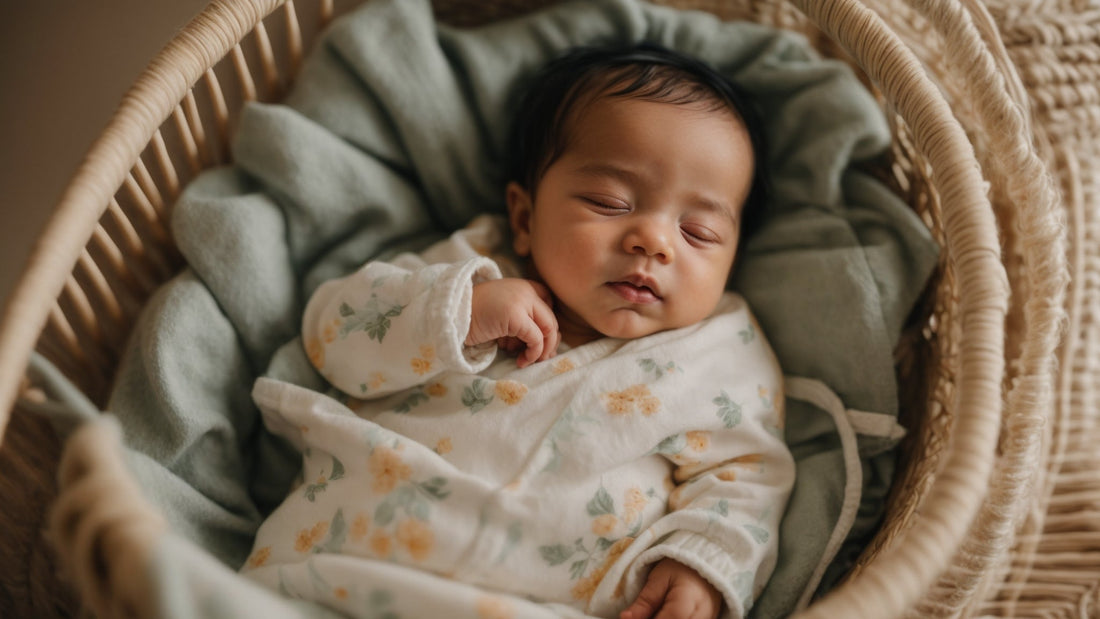
OEKO-TEX vs GOTS: Navigating Baby Clothing Certifications in South Africa
Choosing the Right Baby Clothes: Why Certifications Matter in South Africa
As a parent, nothing is more important than your baby’s health and comfort. From food to clothing, every choice you make impacts their well-being. In South Africa, where eco-conscious shopping is growing rapidly, more parents are asking: How do I know the baby clothes I buy are truly safe and sustainable?
That’s where textile certifications like OEKO-TEX® and GOTS come in. These globally recognized standards help parents choose clothing that’s gentle on delicate skin while also being kind to the planet. Let’s break down what they mean and why they matter for your little one.
OEKO-TEX® STANDARD 100: Safety First
OEKO-TEX® STANDARD 100 is one of the world’s best-known labels for textiles tested for harmful substances. If a garment carries this label, every component – from fabric and thread to buttons and zippers – has been tested and found safe for human health.
For parents in South Africa, this means clothing with the OEKO-TEX® mark has been checked against hundreds of harmful substances, including:
-
Formaldehyde
-
Pesticides
-
Heavy metals
-
Carcinogenic and allergenic dyes
-
Phthalates (plasticizers often linked to skin irritation)
The certification also has strict product classes. For babies and toddlers up to 36 months, only the most rigorous safety criteria apply. This makes OEKO-TEX® an excellent choice if you want peace of mind that your baby’s skin won’t be exposed to hidden chemicals.
GOTS: The Gold Standard for Organic Baby Clothing
The Global Organic Textile Standard (GOTS) is the leading certification for organic textiles worldwide. Unlike OEKO-TEX®, which focuses mainly on chemical safety, GOTS takes a holistic approach that covers the entire production process – from farm to finished product.
To carry the GOTS label, a textile must meet these requirements:
-
Organic fibres: At least 70% organic fibres (95% for the “organic” grade).
-
Environmental responsibility: Strict rules on water use, waste management, and no GMOs.
-
Chemical safety: Only approved dyes and auxiliaries are allowed, ensuring no toxic residues.
-
Fair working conditions: Compliance with International Labour Organization (ILO) standards – no child labour, fair wages, and safe workplaces.
For parents in South Africa, this means GOTS-certified baby clothes aren’t just safe for your child – they’re also supporting a more ethical and sustainable textile industry.
OEKO-TEX® vs GOTS: What’s the Difference?
While both certifications ensure safer, healthier textiles, their focus differs:
-
OEKO-TEX® → Tests the final product to confirm it is free from harmful substances. It can apply to any fabric, even conventional cotton.
-
GOTS → Requires organic fibres and audits the entire supply chain, including social and environmental responsibility.
In simple terms:
-
Choose OEKO-TEX® if you want safety-tested baby clothing.
-
Choose GOTS if you want organic, eco-friendly, and socially responsible baby clothing.
Why This Matters for South African Parents
In South Africa, many baby clothes are imported. By looking for OEKO-TEX® or GOTS labels, you’re choosing international standards that guarantee your baby’s clothing is safe and sustainable – no matter where it was made.
For eco-conscious parents, these certifications help cut through marketing noise and give you real assurance that what touches your baby’s skin is gentle, safe, and responsibly made.
